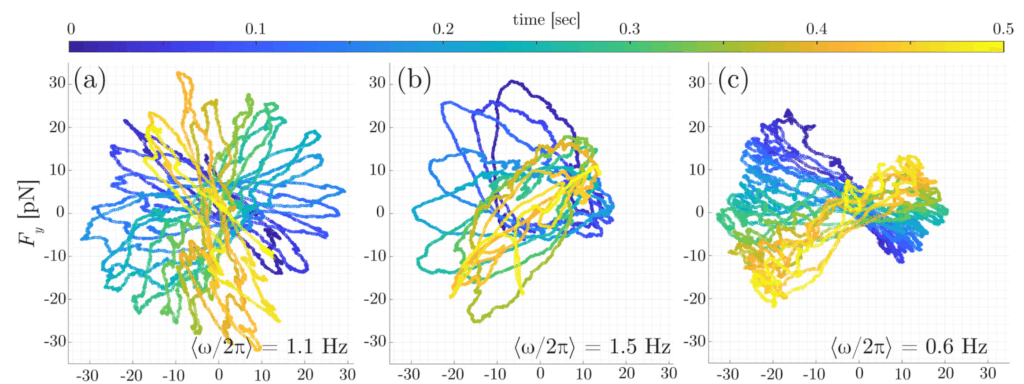
Cal State Fullerton physics and mathematics faculty and student researchers have been recognized with the prestigious 2023 Irwin Oppenheim Award by the American Physical Society for their collaborative research.
The team members won the prize for their research paper on microscopic organisms, also called microswimmers. The researchers used tools from soft active matter, a highly interdisciplinary and fast growing research field involving scientists, mathematicians and engineers.
The Oppenheim Award recognizes outstanding contributions to physics by early career scientists who publish in the APS journal Physical Review E.
“We are very excited and honored to have the impact of our work recognized by the community,” said award recipient and corresponding author Wylie Ahmed, associate professor of physics. “We are especially proud of our team of undergraduate students, graduate students and faculty coming together from four different departments to work closely on experiments, theory and simulations.”
The paper’s other co-authors and award recipients are Nicholas Brubaker, associate professor of mathematics; and CSUF graduates Mauricio Gomez Lopez ’22 (B.S. physics, B.A. mathematics-applied mathematics); Corbyn Jones ’20 (B.S. physics, mechanical engineering); Ryan Muoio ’21 (M.S. physics); and Alex Vidal ’20 (B.S. computer science). Anthony McKnight of the University of Virginia also is a collaborator on the research.
“Receiving this recognition is empowering,” said Gomez Lopez, now a CSUF physics graduate student who is continuing his work with Ahmed. “As a student who came from an immigrant, undocumented, low-income and working-class home, this award made me feel seen as an individual and helped me realize what I have been able to contribute to this research.”
The team’s research focuses on understanding how microscopic organisms swim. Previous studies looked at how microswimmers pushed the fluid around them to understand their motion, Ahmed explained.

“We directly measured the force generated by microswimmers using laser tweezers and developed theoretical tools to understand their motion,” added Ahmed, who leads the Laboratory for Soft, Living and Active Matter (SLAMLab). “This work is important because it helps us understand motion at the microscopic scale, which is relevant for the development of biotechnologies and drug delivery.”
Their paper titled, “Stochastic Force Dynamics of the Model Microswimmer Chlamydomonas reinhardtii: Active Forces and Energetics,” was published in March 2021 in Physical Review E. The article was selected for “elucidating the stochastic force dynamics of a model biological microswimmer using an innovative combination of direct model-independent force measurement, simulation and analytical modeling.”
Microswimmers, like humans, move by deciding which direction to go and how fast to travel. These seemingly straightforward choices are extremely complex since they depend on many factors, some of which come from the environment and others the individual swimmer, noted Brubaker, who used mathematical models to capture their complexity.
“But determining their effectiveness in describing a microswimmer’s behavior is unknown. Our study examines the efficacy of a prototypical model by connecting its theoretical predictions to experimental data,” Brubaker said.
Jones, a design engineer and MBA student at the University of Southern Indiana, noted that working on the research and scientific paper gave him a better understanding of physics, how to articulate highly technical concepts and strengthened his problem-solving and presentation skills.
“My time as an undergraduate researcher taught me how to take the theoretical and mathematical concepts I learned in my engineering and physics courses and apply those in an experimental setting,” said Jones, who is interested in biomedical engineering and pursuing robotic prosthesis design and research. “This is one way that knowledge is discovered — through experimental application.”
The best paper award is the first APS award established by a Physical Review journal and honors late MIT professor Irwin Oppenheim, the founding editor of Physical Review E and a distinguished scientist. The annual award includes a $3,000 stipend, registration waiver and travel reimbursement to attend the APS March Meeting in Las Vegas, and an invitation to speak at the conference.